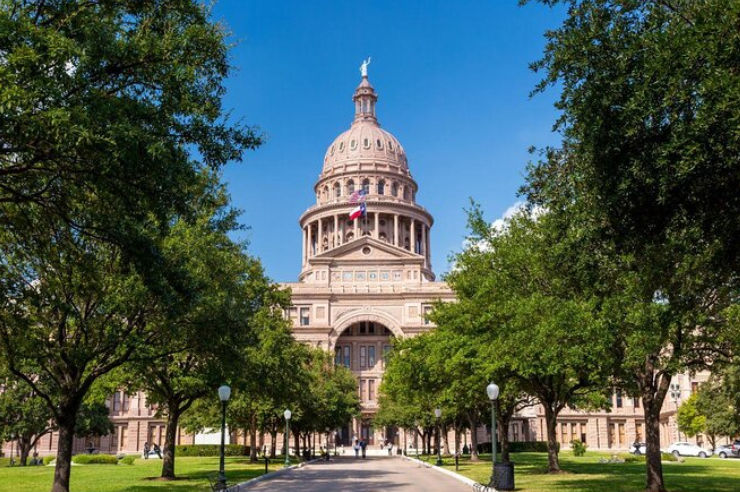The Texas House Public Education Committee is deliberating on House Bill 2 (HB 2)—a substantial school finance bill that seeks to raise funding for public schools, offer teacher incentives, and introduce stricter certification requirements. The proposed legislation, spanning 148 pages, aims to inject $7.6 billion into the state’s public education system.
According to Rep. Brad Buckley (R-Salado), the bill represents the largest investment in Texas public schools in history. However, education advocates and lawmakers have raised concerns over whether the funding increase is sufficient to address rising costs, teacher shortages, and the need for inflationary adjustments.
Key Provisions of HB 2
1. Increasing School Funding and Teacher Salaries
A significant provision of HB 2 is a $220 per-student increase in the state’s basic allotment—the amount of money public schools receive per student. This would bring the per-student funding from $6,160 to $6,380, marking the first increase since 2019.
However, public education advocates argue that this increase is insufficient to cover inflationary costs. Kelly Rasti, a representative from the Texas Association of School Boards, emphasized that while the bill addresses some financial pressures, a larger increase is needed to restore school districts’ purchasing power to 2019 levels.
Additionally, HB 2 mandates that 40% of the basic allotment increase must be used for raising teacher salaries, up from the previous 30% requirement. This differs from a Texas Senate proposal, which suggests removing this restriction entirely.
2. Expanding Teacher Incentive Programs
To attract and retain educators, HB 2 proposes expanding the Teacher Incentive Allotment (TIA), a program designed to help teachers earn up to a six-figure salary. Under the proposed changes, teachers could receive a maximum bonus of $36,000, an increase from the current $32,000 cap.
Rep. Buckley described the initiative as a “transformative step” that would reward and retain the state’s most effective educators. However, teacher unions and advocacy groups warn that not all teachers qualify for these incentives, and a broader funding increase would be more effective in improving overall salaries.
3. Stricter Teacher Certification Requirements
Another major aspect of HB 2 is its restriction on hiring uncertified teachers. Under the new rules, school districts would be prohibited from employing uncertified educators in core subjects such as English, math, science, and social studies.
The change comes in response to alarming statistics from the Texas Education Agency (TEA), which reported that over 17,000 out of 49,400 new teachers in Texas during the 2023-24 school year lacked certification.
TEA Commissioner Mike Morath has expressed concerns over this trend, stating that Texas is moving toward relying almost entirely on uncertified teachers, leaving many unprepared for the classroom.
To help address this issue, HB 2 introduces a state-funded teacher residency program. Under this plan, prospective teachers would receive stipends of at least $3,000 while completing their certification. This initiative aims to ease the financial burden on aspiring educators, who currently must pay for their own certification, often costing around $5,000.
Rep. Jeff Leach (R-Plano) highlighted the financial challenges, noting that many Texans who are passionate about teaching cannot afford the cost of certification, making the new residency stipend an essential investment.

Challenges and Criticism
1. Insufficient Funding Increases
While HB 2 proposes significant investments, many education experts argue that it does not go far enough. According to Raise Your Hand Texas, a school advocacy group, the basic allotment should be raised to at least $7,500 to keep pace with inflation and rising operational costs.
Greg Gilbert, superintendent of Santo ISD, bluntly stated, “Heck no,” when asked whether the proposed $220 increase was sufficient. He estimated that a $1,300 increase per student would cost around $11 billion, whereas the current proposal would only add $3 billion to school budgets.
2. Special Education Funding Concerns
HB 2 seeks to overhaul special education funding by allocating resources based on students’ individual needs rather than where they receive services. Austin ISD Superintendent Matias Segura noted that state funding for special education often falls far short of actual costs. His district, for example, receives $97 million from the state for special education but spends $169 million on necessary services.
3. Teacher Pay Structure Debate
Teacher organizations, such as the Texas Classroom Teachers Association, have raised concerns that the Teacher Incentive Allotment (TIA) program should not replace broader salary increases.
Policy Director Paige Williams stressed that relying too much on performance-based bonuses would leave many teachers without adequate pay increases. She urged lawmakers to increase the basic allotment directly, ensuring fair compensation for all educators, including diagnosticians, librarians, counselors, and paraprofessionals.
Political and Financial Implications
The debate over school funding comes at a time when Texas lawmakers are considering allocating $6.5 billion toward new property tax cuts. Some advocates argue that redirecting a portion of these funds toward education could better support schools and address the growing teacher shortage.
Chandra Villanueva, a policy director at the progressive think tank Every Texan, warned that excessive tax cuts could have long-term consequences for public education.
“We did $22 billion in tax cuts last session,” Villanueva said. “If we continue prioritizing tax reductions over school funding, the cost of fixing these issues will only grow.”
Conclusion: A Step Forward, but More Work Needed
House Bill 2 represents a significant effort to boost teacher salaries, improve school funding, and tighten certification requirements. However, concerns remain about whether the proposed funding increases will be enough to meet the needs of students, teachers, and school districts.
As lawmakers continue debating the bill ahead of a March 18 vote, the key question remains: Will these reforms truly be enough to strengthen Texas’ public education system, or will they leave schools struggling to keep up with rising costs?
Credits: Community Impact





